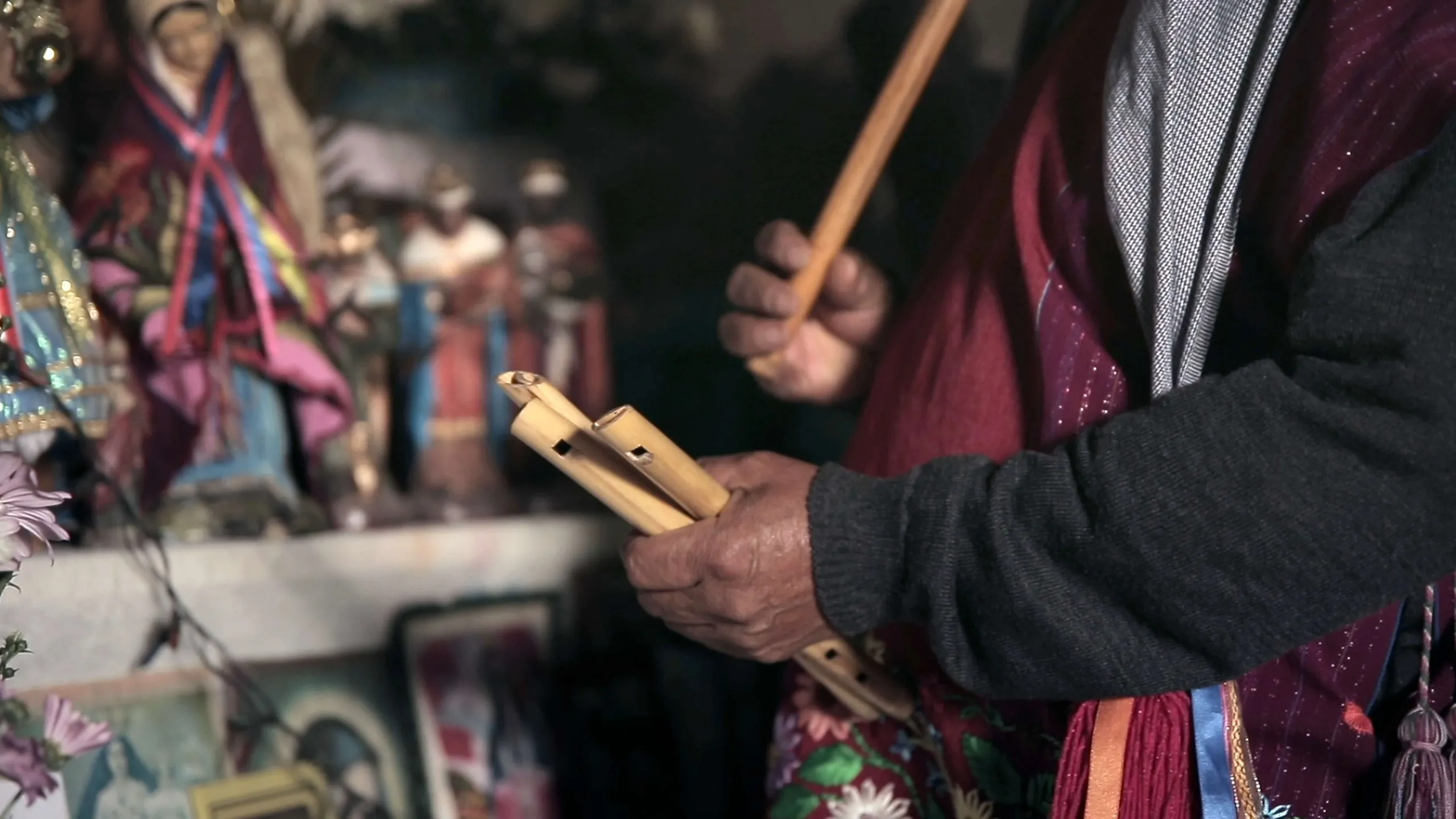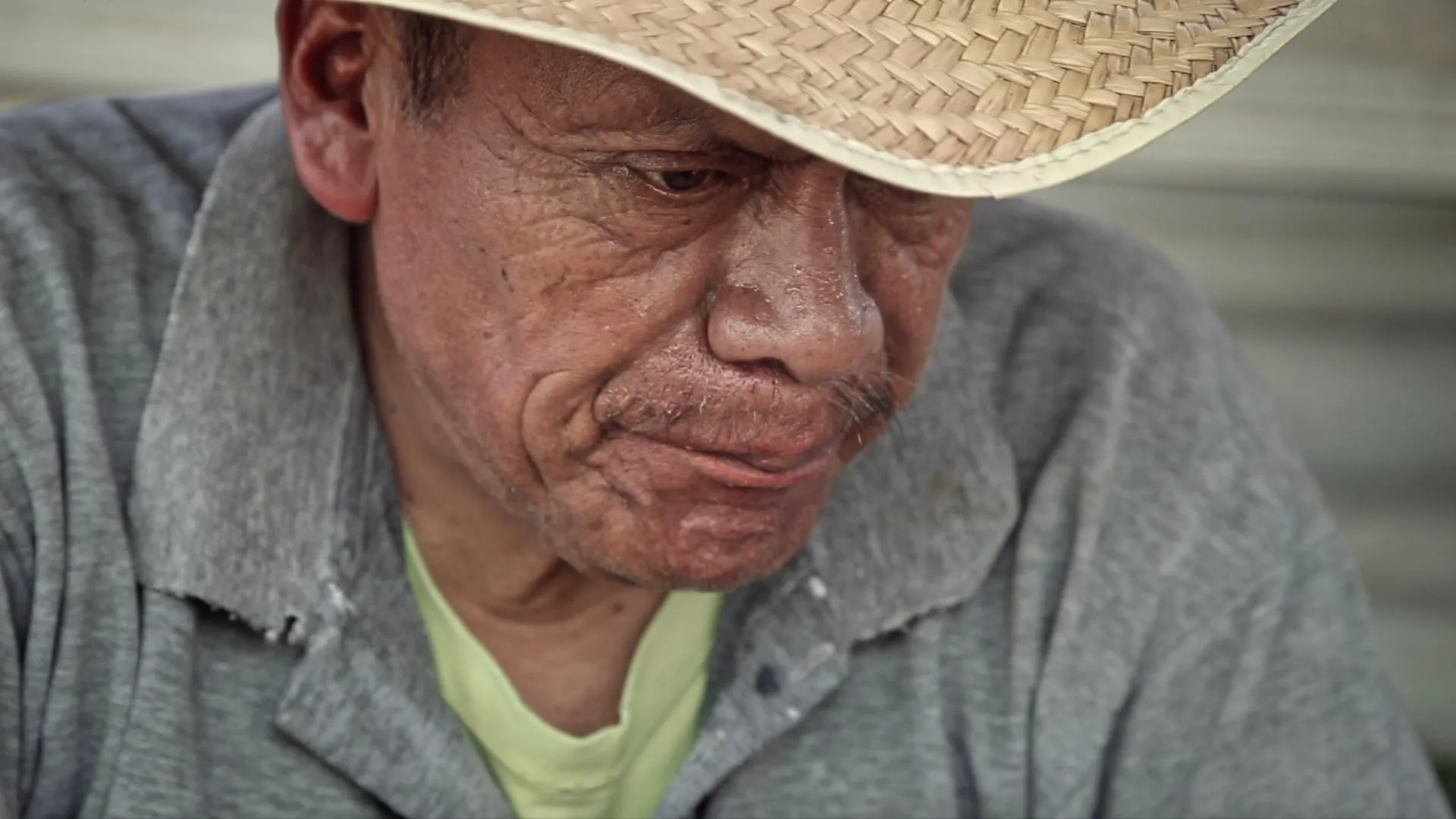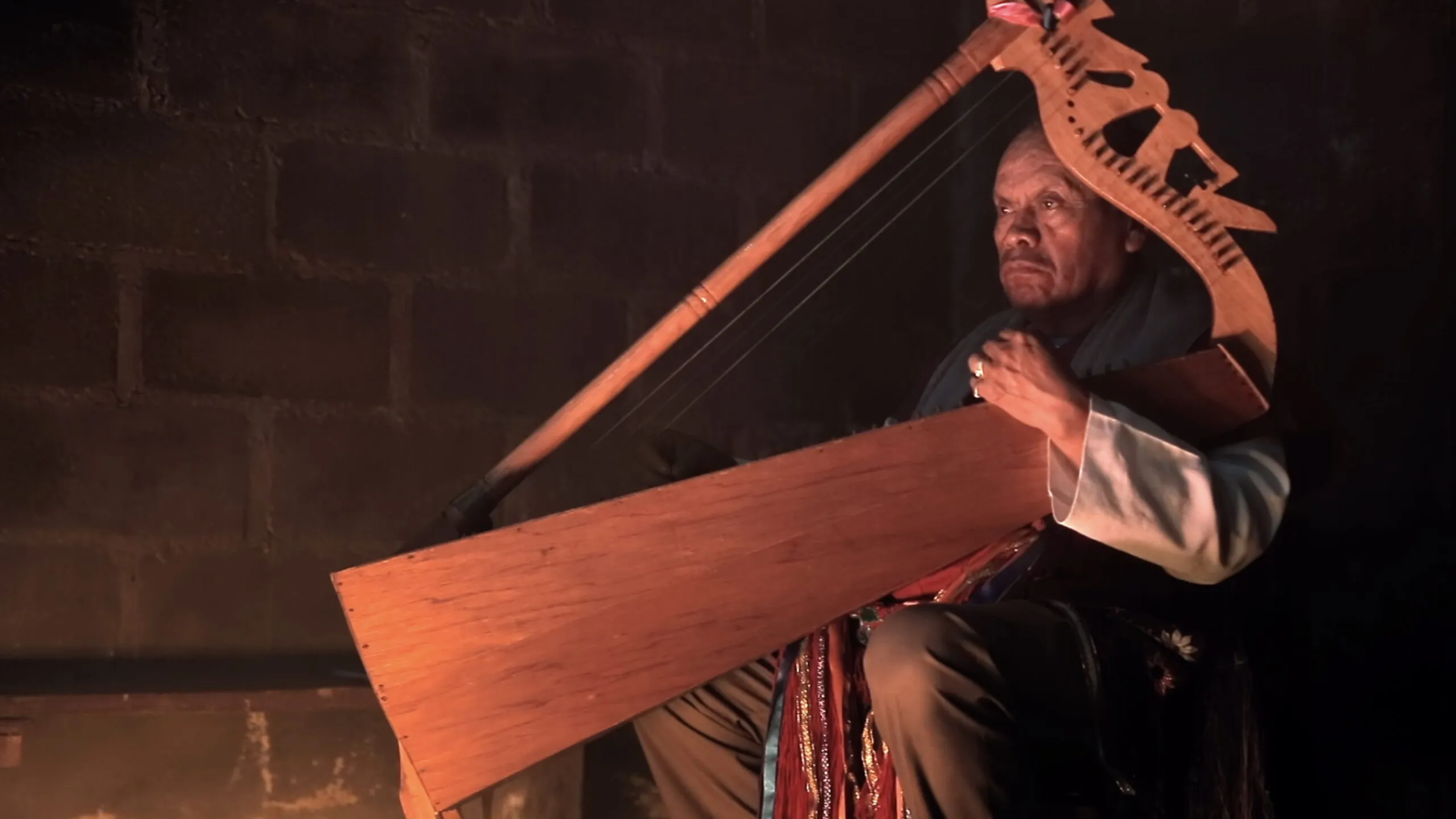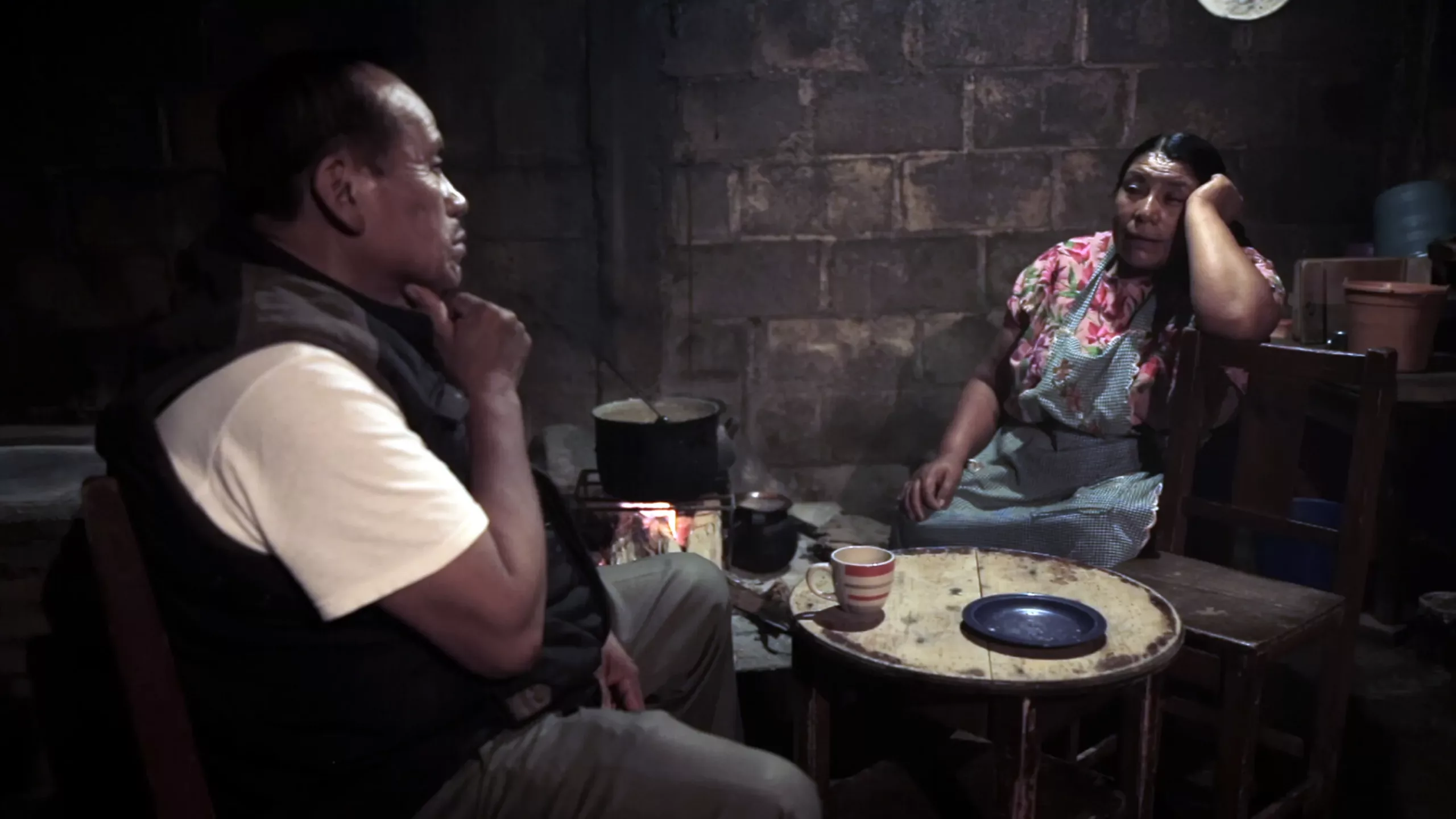Tucked away in the mountainous highlands of Chiapas, Mexico, lies the small Zinacantec community at the heart of Juan Javier Pérez’s intriguing documentary Vaychiletik. Released in 2021, the film invites viewers into the daily rhythms and routines of this indigenous Maya group, with a particular focus on the sacred role of musician José Pérez López.
José has dedicated himself to preserving the community’s traditional musical traditions, passed down over generations. We learn he first received his calling to the flute in a dream as a child, accepting a spiritual summons from his ancestors. Now in his later years, José continues his devotions through performances at important festivals and ceremonies. But balancing cultural responsibilities with practical concerns like farmwork brings difficulties as well as duties.
Pérez achieves a delicate balance here. His up-close, observational style prioritizes listening over explaining. We observe José and his family simply going about life without commentary, lending the film an authentic, fly-on-the-wall quality. Yet the director also honors his subjects with dignity, illuminating complex personal dilemmas around maintaining traditions in modern times. Overall, Vaychiletik offers a poignant glimpse into a little-known world, seen through the eyes and music of one man.
Meeting the Maestro
At the heart of Vaychiletik’s story lies José Pérez López. From a young age, José has served his community as a sacred fluteist, leading important rituals and festivals. We learn his path was set by visions from his ancestors—as a boy, he dreamed he must accept this role.
Now an elder, José’s commitment remains strong despite challenges. He finds balance hard between traditions and practical concerns, like maintaining his farm. José wants more time for crops, yet believes refusing the gods could bring consequences. His dilemma captures the film’s theme of navigating modernity versus ancestry.
José isn’t alone, though. He lives with Elvia, his wife of many decades. She supports José fully, even when frustrated by the effects of his duties. Her exasperation as José drinks heavily after ceremonies adds layers—we see traditions both empower and burden individuals. José and Elvia’s dynamic, in all its tenderness and tension, feels grounded in reality.
Their son Esteban also features prominently. Hardworking Esteban helps on the land as José ages. He represents the next generation now guiding community rituals. Though young, Esteban clearly respects his father’s role as maestro while embracing changes of his own time. With both pride and care, he ensures José’s responsibilities pass to capable hands.
Together, this family trifecta anchors the film. We join their everyday rhythms to appreciate the challenges of preserving culture intergenerationally in changing environments. José, Elvia, and Esteban’s little domestic drama perfectly encapsulates Vaychiletik’s poignant blend of intimacy and idea.
Sacred Songs and Spirit Worlds
The people of Zinacantán treasure their indigenous cultural expressions. One is the traditional music known as Bats’i son ta Sots’leb. Performed mainly on flutes and drums, its melodies have been passed down for generations as integral to rituals and celebrations. José’s playing helps maintain this art form’s delicate rhythms and scalar patterns.
Spiritual life in the community also traces deep roots. The note residents blend Catholic and pre-Columbian faiths, worshipping ancestors while honoring saint icons. In this blend lies openness to mystical realms. José poignantly demonstrates this through his own connection to dream visits from forebears guiding his path.
We sense José’s devotion through respecting their summons and committing body and soul each night to sacred ceremonies regardless of rigors. His reflections offer valuable insight. José believes firmly that traditions persist only if community members remain open to ancestral guidance through dreams. Without this spiritual foundation, customs risk disintegrating over time.
Director Pérez gifts us understanding of beliefs prompting José’s dedication, against a backdrop of logistical hurdles. Though tiring, José’s role sustains cultural treasures from fading. Generations to come may know their indigenous musical and religious roots due to guardians like him maintaining that vital link between worlds.
Rural Rhythms and Sacred Traditions
Vaychiletik invites you into a world rarely seen. Director Pérez shares his village’s day-to-day with gentle care, letting intimacies unfold naturally. Scenes immerse us in rural tasks—people working sun-warmed fields, crafting colorful fabrics, tending delicate blooms.
It’s relaxing to observe simple chores and interactions. Through them, we learn this community’s steady cadence. Time seems less bound here. Traditions integrate seamlessly into living. Whether embroidering cloths or playing music, cultural practices flow as freely as countryside pathways.
Perhaps most striking are portrayals of sacred gatherings. We accompany José among flickering fires, witnessing ancient prayers resound across misty highlands. Director Pérez maintains a respectful tone, prioritizing ceremonies’ authentic spirit over explanation. Though aloof, his lens conveys rituals’ deep community power.
José’s role within becomes clear—the maestro uniting villagers through song. Yet responsibilities aren’t glorified. We see their toll, shared by family supporting José’s role. Scenes capture the complexity of traditions, both strengthening cultural roots and straining personal resources.
Overall, Vaychiletik presents a vision rarely seen outside. Through personal glimpses and cultural fly-on-the-wall moments, it shows a community resilient in its rural naturalness and spiritual closeness. Director Pérez gifts foreign eyes a view into true village rhythms, relationships, and sacred bonds.
Dreaming Between Worlds
José’s story reveals tensions between old ways and new realities. As traditions demand, he honors festivals through music. Yet responsibilities strain family life and farmwork too. José feels pulled between God’s dreams and day-to-day goals.
His dilemma stems from culture but resonates broadly. Vaychiletik explores the challenge of balancing roots and progress. How do communities maintain customs when modern options call? José wonders if livelihood could improve by loosening rituals’ hold.
Director Pérez handles such issues sensitively. He avoids simplified views of tradition as backward or liberating modernity. Instead, layers of each are shown influencing Zinacantán and José alike. Choices seem less cut-and-dry when considering community, spirituality, and individual well-being all at once.
Alcohol’s role proves especially complex. For José, it stems from duties but harms health. His role elevates status religiously yet weighs him down physically. Again, perspectives blend—intoxicants reward music socially yet endanger the musician personally. Such nuances reflect larger questions about finding balance when fulfilling roles expected by group and self.
Ultimately, the film resonates beyond setting by portraying universal searches for purpose. José’s story invites reflection on reconciling past and future, duties large and small. As with any community member, he strives to walk a middle path honoring heritage while caring for loved ones and his own soul. Dreams continue guiding his steps between worlds.
Walking Between Worlds
Vaychiletik sees through a unique lens. Director Pérez bypasses explanations for sensitive closeness. We live alongside José without frames between.
Pérez’ camera moves as family, dipping into ceremonies, chats, and chores. Nothing interrupts folkways’ natural flow. I admire how location guides, avoiding outside perspectives that distance. Colors simply glow as audiences absorb through essence instead of words.
Landscapes shine too, from mist-cloaked highlands to fields alive with laborers. Shots linger lovingly on labor and art alike. Music streams fluidly throughout, marrying image with emotional memory. Together, visuals and tunes draw us into daily rhythms and sacred sublimity.
That first-person focus brings a sense of walking between observer and observer. Ritual scenes immerse us in firelight and fervor yet leave mysteries mysterious. I feel wonder without knowing precise meanings—a fitting approach for these profoundly living traditions.
Overall direction feels defined by intimate familiarity rather than factual data. Through a personal yet unobtrusive eye, Pérez shares slices of lived realities too seldom seen. That rawness and respect reflect a community member’s care for depicting cultural intricacies with compassion. Vaychiletik succeeds in showing while still, beautifully, leaving much to individual discovery.
Living Between Dreams and Daylight
Vaychiletik offers a glimpse into a world we seldom see. Director Pérez shares the intimacy of family and community, granting respectful access to rituals central to their lives.
By prioritizing observational immersion over explanation, Pérez presents traditions as a natural flowing rhythm. We feel music and faith permeating daily tasks from planting to storytelling. Meanwhile, subtle tensions also emerge as customs strain health and limit other dreams.
Throughout, José serves as a gentle guide between realities. His responsibilities pull him toward the spirits even as age wears on his flesh. Yet Pérez never passes judgment, honoring his navigation of duties handed down and desires crafted by self.
In the end, this film succeeds in its quiet way. It reveals to us a living culture sustained by ancestors and the challenges of walking between their dreams and present daylight. Vaychiletik offers an experience, more than answers or arguments, bringing distant lives nearer through shared humanity. And it reminds us that traditions, like dreams, often remain eloquent in their mystery.
The Review
Vaychiletik
Vaychiletik crafts a poignant portrait of an intricate community sustaining traditions across generations. Through José's stories and the music permeating rituals, this evocative film transports audiences to walk intimately among the living rituals and everyday struggles of Zinacantán. Director Pérez achieves transcultural storytelling at its finest through quiet intimacy rather than explanation.
PROS
- Sensitive and respectful portrayal of an indigenous community
- Achieves cultural immersion through observational style without explanations
- Gorgeous cinematography that brings rituals and landscapes to life
- Universal themes of balancing traditions and individual desires
- Reveals complex realities facing the community in a nuanced way.
CONS
- Minimal dialogue or context could frustrate some viewers.
- Slow pace may not appeal to all audiences.
- Accuracy of cultural representation is subject to indigenous evaluation.






















































Discussion about this post